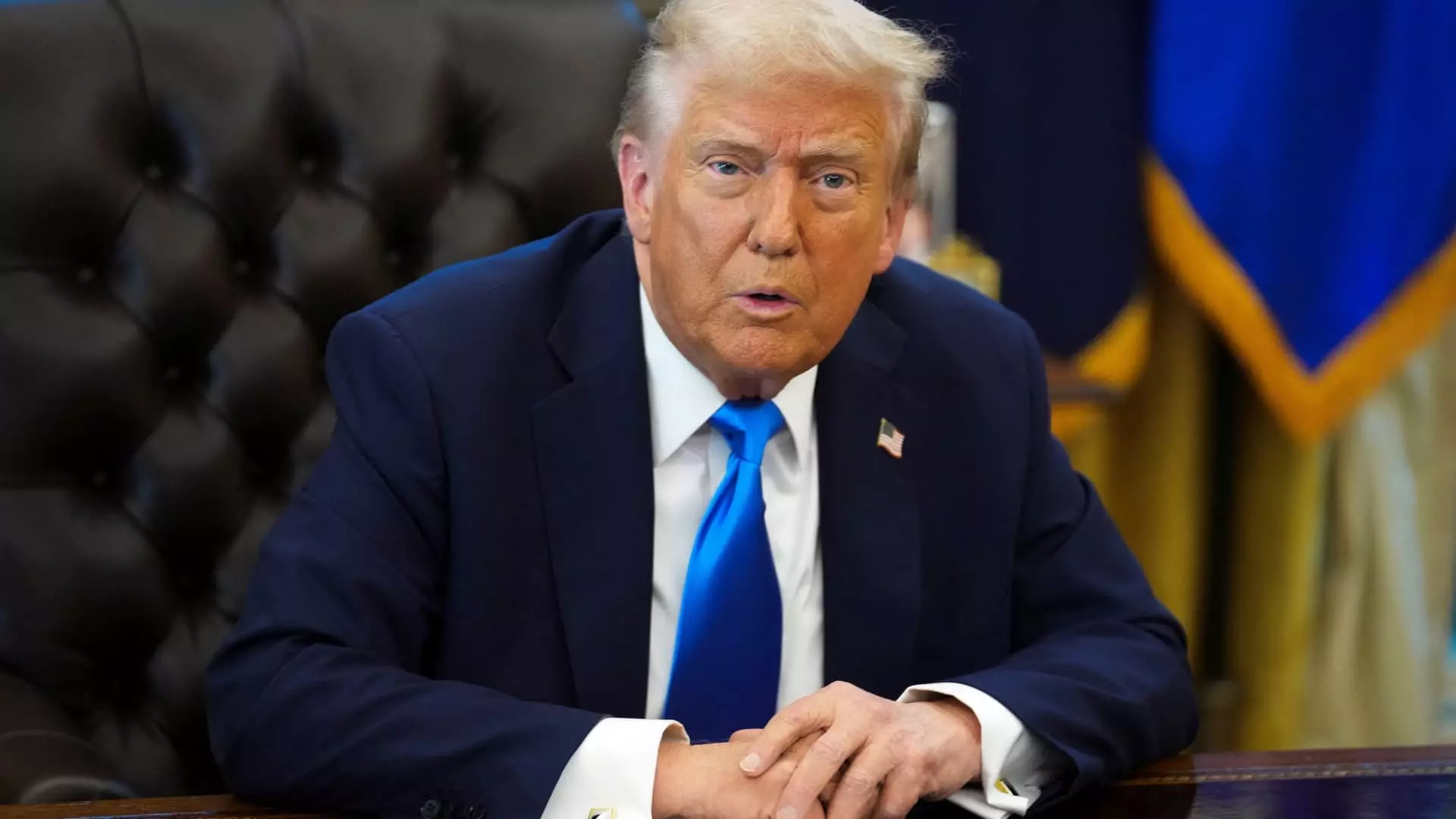The recent claims by former President Donald Trump about the involvement of high-profile American business figures in a potential TikTok rescue reveal far more than surface-level patriotism. Trump’s emphasis on figures like Lachlan Murdoch, Larry Ellison, and Michael Dell seems less like a genuine effort to protect U.S. interests and more like a strategic maneuver to exploit America’s geopolitical anxieties for personal or corporate gain. While Trump touts these individuals as “patriots,” the underlying truth betrays a complex web of corporate alliances that often prioritize profit over national security. Murdoch’s association with Fox Corporation, for instance, raises questions about whether this is an effort to wield influence over digital content or simply a way for entrenched corporate interests to diversify their portfolios amidst regulatory uncertainties.
These figures are not paragons of public service; they are successful entrepreneurs whose motivations are heavily driven by market interests and influence-building. Framing their involvement as patriotic is a disservice, glossing over the broader context of corporate power playing a role in shaping what should, ideally, be a national security decision. The insinuation that these elite moguls are poised to be “great Americans” demonstrates a reckless disregard for the complex geopolitics and the real risks of foreign interference, cloaked in patriotic rhetoric.
The Illusory Promise of Data Privacy and National Security
Despite the White House’s optimistic portrayal of the deal, claiming that six of seven TikTok board members will be American and that spurious control over the algorithm will be transferred to U.S. interests, the assurances sound hollow. The emphasis on “control” is a superficial fix that conveniently sidesteps the core issue: how much influence does the Chinese government still wield over ByteDance? The notion of a seamless transition of data privacy, from Chinese entities to American oversight, appears more like a band-aid over a fundamentally insecure system.
The White House’s reliance on Oracle to oversee data and privacy measures seems like a superficial gesture rather than a comprehensive solution. Oracle, despite its prominence, is a corporation driven by profit motives that may not prioritize national interests over market survival. Consequently, the promise of a secure, American-controlled data environment rings false when scrutinized against the backdrop of a global digital economy where transparency is often sacrificed at the altar of business interests. Are we truly addressing the core vulnerabilities, or merely appeasing public fear with cosmetic changes?
International Dynamics and the Illusion of Fair Dealings
Adding to the skepticism is China’s measured response, which emphasizes adherence to market rules while simultaneously asserting that negotiations are still far from conclusive. The Chinese government’s stance underscores the ongoing geopolitical chess game where both sides are wielding negotiations as leverage. The assertion that China supports a “fair” and “non-discriminatory” environment is, quite frankly, suspect, given the historical pattern of economic protectionism and strategic mistrust.
What is glaring is the stark reality that these negotiations are not just about a social media platform but are emblematic of deeper global tensions—an intricate dance of economic influence, national security, and technological dominance. The U.S. appears eager to demonstrate its sovereignty—masking broader geopolitical ambitions under the guise of protecting American citizens—yet the negotiations reveal an underlying dependence on corporate actors and international diplomacy that is anything but straightforward. The premise that this deal will restore control and security is a fantasy, a carefully crafted propaganda narrative that seeks to appease a domestic audience anxious about Chinese influence but ultimately leaves unresolved the ambiguities and risks inherent in such high-stakes negotiations.
The Farce of Patriotism in Corporate America
What stands out most starkly in this entire scenario is the pervasive use of patriotic language to mask self-serving interests. Politicians and corporate executives alike exploit notions of patriotism to garner public support while pursuing agendas that benefit entrenched economic elites. The emphasis on “American patriots” among corporate figures like Larry Ellison and Michael Dell is a calculated political move, designed to sway public opinion and legitimize their involvement.
In reality, the actors purportedly fighting for national security are often motivated by economic self-interest and influence, rather than a genuine desire to serve the public good. Their involvement in such negotiations amounts to corporate diplomacy, where the language of patriotism cloaks pragmatic interests. It reveals a troubling trend in both politics and business: the conflation of national identity with economic power, often at the expense of genuine security and democratic accountability. This blend of corporate influence and political discourse underscores the urgent need to question the narratives that frame these high-stakes negotiations—what appears to be patriotic action may, in fact, be the latest chapter in an ongoing struggle for corporate dominance and geopolitical influence.


Leave a Reply